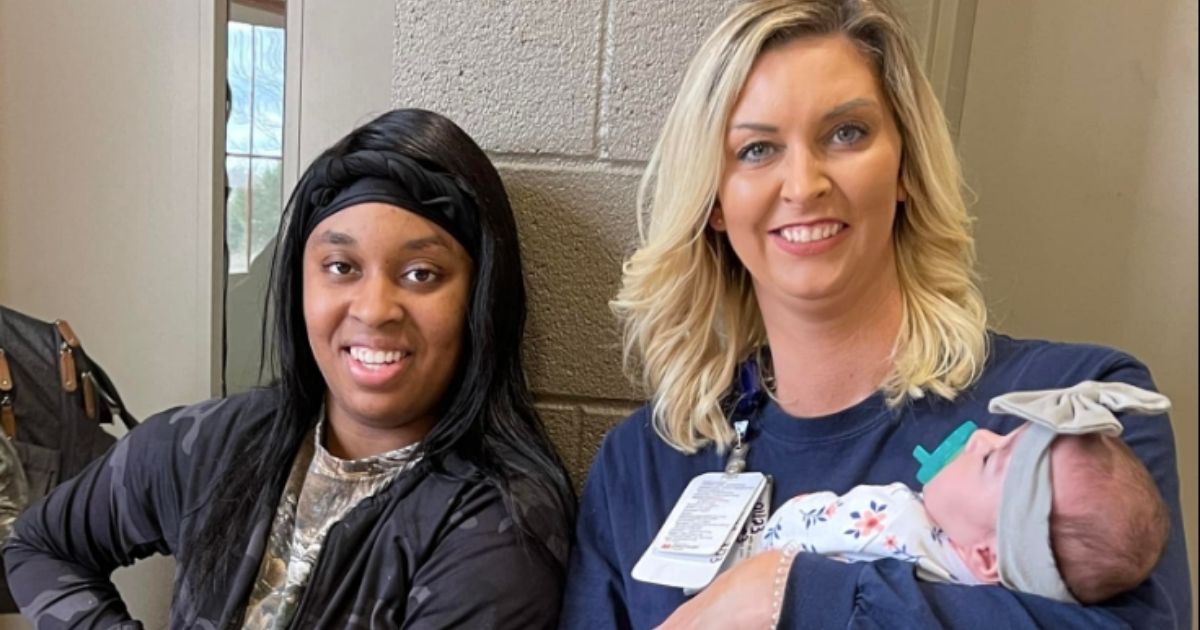From the very beginning, children are their own people. Expecting parents can plan out every detail in the world, find out if they’re having a boy or a girl, prep the nursery — and yet babies arrive on their own timeline.
At 25 weeks pregnant, most mothers-to-be would expect to be pregnant for a few more months. When Kitana Garret of Columbia, Tennessee, reached 25 weeks, though, her teeny-tiny, little daughter made her debut.
On Oct. 5, while Garrett was home alone, she went into labor and delivered Za’myla Camilla Miracle Garrett — and “Miracle” is certainly a suitable name considering what she’s endured.
[firefly_embed]
[/firefly_embed]
When first responders got the call, they didn’t have much hope for the situation, considering how early the preemie was — she barely weighed one pound. But when they got to the house, the baby was breathing, and suddenly, they knew they had a fighter on their hands.
“[A fellow firefighter] looked up at us and said, ‘She’s … she’s actually, she’s breathing,'” Cody Hill, one of the first to arrive, told Good Morning America. “So everything kind of had to kick in gear at that point.”
Hill made sure the heater was turned on in the house, assisted the baby’s breathing with a bag valve mask and did everything in his power to keep little Za’myla alive.
A short while later, paramedic Jamie Roan arrived, and together she and Hill took the baby to the hospital.
“We put her on the monitor and realized that she had a fighting chance,” Roan said. “Cody and I started CPR, and we suctioned her, and then I felt her move her shoulder, and that’s when we were all just a little amazed by her. And so we all had a little hope, and we got excited.”
“My whole entire hand probably fit from the top of her head down to her waist,” Hill added. “No bigger than maybe a potato, is what it seemed like.”
As mom recovered, baby Za’myla continued to survive. She spent four months at Monroe Carell Jr. Children’s Hospital’s NICU, but she kept fighting.
[firefly_embed]
[/firefly_embed]
“My little fighter,” Garrett posted on Facebook shortly after her baby’s arrival. “10-5-2021. I’m asking for prayers at this moment for our baby girl.”
Hill and Roan were anxious for updates on their littlest charge, and they kept checking Garrett’s Facebook. As Za’myla progressed, Garrett would personally send them updates, and Hill and Roan helped collect supplies and gas gift cards that were donated to the family.
[firefly_embed]
[/firefly_embed]
“We Facebook-stalked her a lot and looked at all of her pictures,” Roan said, according to Good Morning America. “And then we couldn’t help ourselves but to message her and ask her, you know, how it was going and just make sure that she knew she had continued support from her community and from us.”
Pediatric neonatologist Dr. Leon D. Hatch credited the two first responders with saving the baby and making life possible for her.
[firefly_embed]
[/firefly_embed]
“Of her entire NICU stay, those first 20 to 30 minutes when the first responders were taking care of her was probably the most dangerous time in maybe her entire life,” Hatch said. “The fact that she got through that and they got her to the hospital alive, and supported to where another hospital could take over, that’s a real testament to how well they did in this. It certainly saved her life.”
It was only fitting, then, that as soon as they could, Garrett and Za’myla visited their heroes in person.
“All I can say is thank you a million times because they are a blessing God sent,” Garrett said. “They didn’t give up, so I feel like they will continue do that later on in life [for Za’myla].”
[firefly_embed]
[/firefly_embed]
She also asked the two a very important question: Would they agree to being Za’myla’s godparents?
Of course they said yes, and Za’myla will grow up knowing she has some of the most involved godparents a kid could ask for.
“I was shocked,” Hill admitted. “I was blown away. I’d never been asked to do anything like that, especially, you know, in our — the career that we have, you don’t ever really get feedback much from patients.”
This article appeared originally on The Western Journal.

























 Continue with Google
Continue with Google